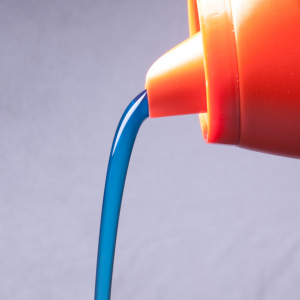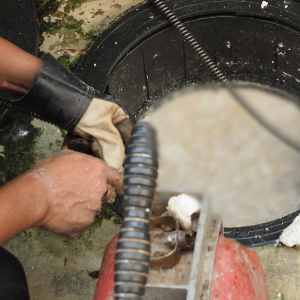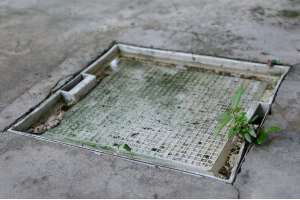How do enzyme cleaners work in grease traps?
Understanding how enzyme cleaners work in grease traps is key to maintaining clean, odour-free plumbing in commercial kitchens. These biological solutions offer an eco-friendly and highly effective method of breaking down fats, oils, and grease (FOG) before they become costly problems. In this blog, we explain the science behind enzyme cleaners and why they are essential for New Zealand businesses aiming to stay compliant and efficient.
What are enzyme cleaners?
Enzyme cleaners are environmentally friendly cleaning agents containing natural bacteria and enzymes. These biological compounds are specifically selected for their ability to digest organic waste, especially fats, oils, and grease—the main culprits behind grease trap blockages and odours.
Unlike chemical drain cleaners, enzyme cleaners work with nature by breaking down organic matter into harmless by-products like water and carbon dioxide. This makes them ideal for ongoing grease trap maintenance without damaging pipes or the environment.
If you're curious about the broader benefits of enzyme use in your grease trap system, be sure to read our related article: Why should I use enzyme cleaners in my grease trap?. It explores how enzyme cleaners prevent costly repairs, improve hygiene, and support environmental compliance in New Zealand's commercial kitchens.
How do they work in grease traps?
When added to a grease trap, enzyme cleaners introduce millions of beneficial bacteria that produce enzymes. These enzymes target FOG and other organic waste, breaking them down into smaller molecules. The bacteria then consume these molecules, effectively digesting the waste.
This biological process:
-
Prevents the accumulation of thick grease layers
-
Eliminates bad smells caused by decaying organic matter
-
Keeps wastewater flowing freely
With consistent use, enzyme cleaners maintain a balance within the grease trap, reducing the need for frequent pump-outs and emergency plumbing interventions.
If you're looking for in-depth information on how enzyme cleaners work in grease traps, check out our article: How do enzyme cleaners work in grease traps?
What are the advantages over chemical cleaners?
1. Non-corrosive and safe for pipes
Chemical cleaners can erode pipe linings over time, but enzyme cleaners are gentle and non-toxic.
2. Environmentally friendly
They are biodegradable and compliant with New Zealand’s wastewater standards. In fact, a comprehensive guide from In-Pipe Technology highlights how microbial and enzymatic treatments effectively break down fats, oils, and grease (FOG) in wastewater systems, supporting cleaner, more sustainable operations for commercial kitchens.
3. Long-term cost savings
Less frequent need for professional cleaning services and fewer plumbing issues means lower maintenance costs.
4. Odour control
By breaking down organic matter, enzyme cleaners neutralise the source of bad smells rather than masking them.
How should you apply enzyme cleaners in your kitchen?
You can use enzyme cleaners manually or via an automatic dosing system:
-
Manual Dosing: Simply pour the recommended amount down your sink or directly into the grease trap on a regular schedule.
-
Automatic Dosing Machines: These release precise doses at optimal intervals, providing consistent protection without relying on staff.
Insinc Products offers both manual dosing solutions and dosing systems tailored for commercial use. Regular use ensures round-the-clock protection for your grease trap.
For a detailed look at whether a dosing machine is better than manual dosing for grease traps, read our article: Is a dosing machine better than manual dosing for grease traps?
From restaurants and cafés to aged care kitchens and food manufacturing facilities, enzyme cleaners are trusted across Aotearoa. Their natural cleaning power aligns with eco-conscious business practices and helps maintain compliance with council grease management regulations.
Enzyme-based maintenance is a simple, effective step towards reducing downtime, avoiding fines, and protecting your plumbing infrastructure.
Start your enzyme routine with Insinc
At Insinc Products, we supply a curated range of high-performance enzyme cleaners and automatic dosing systems that support hassle-free grease trap maintenance. Designed for New Zealand's commercial kitchens, our solutions help you maintain hygiene, reduce costs, and stay compliant.
Explore our enzyme cleaner solutions now or contact us for expert advice tailored to your business.
Frequently Asked Questions (FAQ)
Q: Are enzyme cleaners safe to use around food preparation areas? A: Yes, enzyme cleaners are non-toxic and biodegradable, making them safe for use in food service environments when used according to the manufacturer’s instructions.
Q: How often should I apply enzyme cleaner to my grease trap? A: Daily or scheduled dosing is ideal for busy commercial kitchens. The frequency depends on your kitchen volume and setup.
Q: Can enzyme cleaners eliminate the need for professional pump-outs? A: No. They reduce the frequency and severity of build-up, but periodic professional cleaning is still necessary.
Q: Will enzyme cleaners damage my plumbing or grease trap? A: Not at all. Enzyme cleaners are non-corrosive and actually help preserve your plumbing by preventing blockages.
Q: How do I know if enzyme cleaning is working? A: You'll notice fewer odours, faster drainage, and fewer plumbing issues. Regular monitoring and consistent use ensure optimal results.
https://www.insinc.co.nz/grease-trap-cleaners.html
Posted: Friday 7 November 2025



